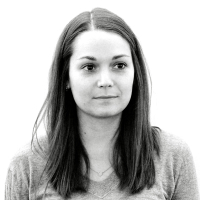This week, the parents of slain teenager Michael Brown travelled to Geneva to call on the United Nations for help in bringing peace and justice to Ferguson. Meanwhile, their Missouri hometown appears to be on the brink of chaos.
Despite a concerted police effort to quell demonstrations, protesters have carried on consistently and, for the most part, calmly since Brown’s death at the hands of police officer Darren Wilson this past August. But the impending grand jury decision on whether Wilson will be indicted in Brown’s death—and leaks of evidence suggesting he won’t—has law enforcement, residents, and business owners preparing for violence on the streets.
In addition to Missouri Governor Jay Nixon’s announcement on Tuesday that the Missouri State Highway Patrol, the St. Louis Metropolitan police, and the St. Louis County police will join forces (with the National Guard on standby) in handling demonstrations following the grand jury decision, almost every national news organization—from CNN to The New York Times, the Associated Press and Reuters—has reported that Ferguson residents and business owners have been taking matters into their own hands. Gun sales are up, local gun-shop owners told reporters. People like Dan McMullen, whose insurance agency is located near a spot where the few instances of vandalism and looting took place following Brown’s death, was quoted by both the New York Times and CNN as saying he’s stocking up on guns in case of a riot.
“So maybe I get trapped here or something and have to have a John Wayne shootout,” McMullen told CNN. “That’s the silly part about it: Is that going to happen? Not a chance. But I guess, could it? I’m the only white person here.”
Despite Governor Nixon’s declarations that “violence will not be tolerated” and “residents and businesses of this region will be protected,” some experts wonder whether all the emphasis on preparedness—from the $120,000 spent by the St. Louis County Police on riot gear to the sudden demand for guns—may do more harm than good.
“I don’t think this is the way we should be thinking about what might happen,” American University professor Cathy Schneider told The Daily Beast. Instead, Schneider, who is an expert on social movements and racial tensions, argues that what we should be thinking about is, ‘how do we convince a community that the police will act to serve them, that the justice system will defend their interests, and that the verdict will be just?”
Leaks of grand jury evidence, which have prompted speculation that Wilson will not be prosecuted, “have been very damaging” to that cause, Schneider said. They give the impression, she said, that Wilson’s verdict is already a foregone conclusion. Equally as damaging is the notion that those not preparing to protest the verdict must be armed for protection.
“If one side is buying guns and preparing, what do you think the other people are doing, who think those guns are going to be used against them?” Schneider asked. Instead of acknowledging that Ferguson’s black community “is in pain and wondering whether justice will be done,” Schneider said, such intense preparation sends the message that “we think your community is dangerous and we’re armed and prepared to kill you.”
While equipping themselves against violence, the law enforcement agencies that have converged upon Ferguson are also under pressure to defend the First Amendment rights of peaceful protesters and the journalists sent to cover them. A number of organizations have already reached out to police to ensure that happens.
This week, for example, the “Don’t Shoot Coalition,” comprised of about 50 groups such as Veterans for Peace and the Organization for Black Struggle, presented law enforcement officials with a list of “Proposed Rules of Engagement,” aimed at keeping protests safe for everyone. The list includes requests for police to notify protesters 48 hours before the grand jury decision is announced to the public, to wear “only the attire minimally required for their safety,” and refrain from using “crowd control equipment such as armored vehicles, rubber bullets, rifles and tear gas.”
“There was a really important lesson learned in the initial aftermath in August,” Jeffrey Mittman, executive director of the ACLU of Missouri, told The Daily Beast. “The protests were peaceful until there was an overreaction from police. I think the police have learned that if they are improperly harassing the press, improperly taking away the rights of protesters, the response will be legal.”
This month, the ACLU of Missouri filed a lawsuit on behalf of a journalist claiming his First Amendment rights were violated by police while trying to cover the protests in Ferguson. Recently, Mittman said, the organization has been in communication with police and protesters to encourage a non-violent response from both sides after the grand jury announces its decision.
“By and large the community, police, and protesters want the same thing: space for peaceful protests,” Mittman said.
Though it may not be the answer Ferguson wants, the grand jury’s decision will inevitably be the start of a new chapter for the city, not only in its quest for justice for Brown but in forging a new relationship between the city’s black community and the police department tasked with protecting it.
Ron Hampton is a former Washington, DC police officer and the former executive director of the National Black Police Association. From his experience as a cop, Hampton understands the need for law enforcement to be over-prepared in a situation where demonstrations are inevitable—he just hopes it isn’t too much, and much too late.
““The police are preparing for the worst, but they should’ve done that a long time ago,” he said. “If it wasn’t Michael Brown it was going to be someone else because [the police] had not done what they needed to in terms of a real, true public safety strategy that included everyone.”
“Dr. King said ‘justice delayed is justice denied,’” Hampton continued. “We are looking at the results of what happens when justice is delayed or denied.”






